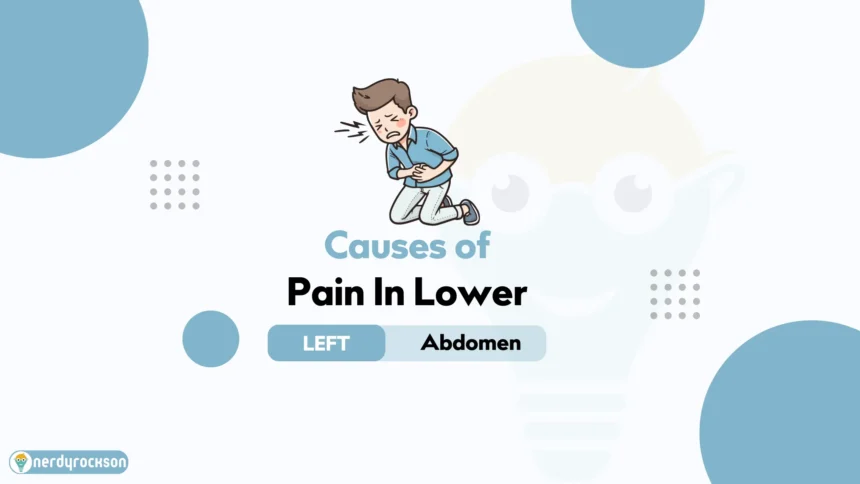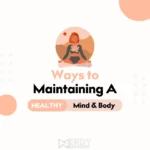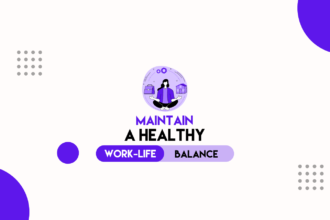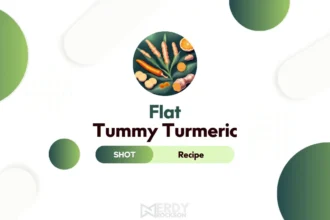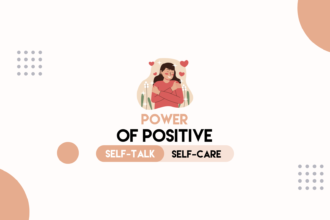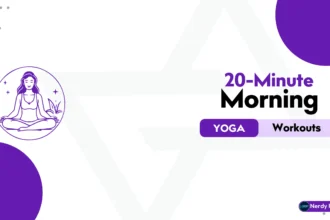Experiencing unexplained pain can be nerve-wracking, especially when it’s in a specific region like your lower left abdomen. You might be wondering, “Why am I feeling this persistent pain in my lower left abdomen?” You’re not alone in this situation. Discomfort or pain in the lower left abdomen is experienced by many and can stem from a variety of health issues–ranging from mild to severe.
This article guides you through the seven common causes, hoping to clear your uncertainties and equip you with essential knowledge. Any healthcare decisions, though, should always be discussed and confirmed with your healthcare provider.
The core focus of this article is to provide you, the reader, with an understanding of why you might be feeling pain in your lower left abdomen. Whether caused by everyday disrupters, like irritable bowel syndrome or severe conditions like endometriosis, we’ll help you understand your symptoms better.
You should note that this article should not replace medical advice. If you’re experiencing severe or persistent pain in lower left abdomen, please seek medical attention immediately.
Let’s delve into the main issues that can cause pain in the lower left abdomen. After reading this, you’ll be better equipped to understand your symptoms and discuss them with your healthcare provider. Knowledge is power—and that power can lead to speedier recovery and peace of mind.
Common Causes of Pain in Lower Left Abdomen
In your quest to decode the mystery of your lower left abdominal pain, knowing more about its potential causes is the first commandment. That sharp, throbbing, or dull ache in your lower left abdomen isn’t something you should brush aside. It could be your body’s way of sounding an alarm bell about an underlying health issue. There are many possible culprits for this discomfort, ranging from mild to more serious conditions. Let’s dive in and explore some potential causes of this unsettling pain.
1. Diverticulitis
Imagine diverticulitis as little sacks forming in your digestive tract’s walls—specifically, the large intestine. When these get inflamed or infected, you may feel a sharp pain in your lower left abdomen. Sometimes, this condition progresses without showing any symptoms. However, in addition to the localized pain, you might also experience fever, nausea, and a significant change in bowel habits when it occurs.
Factors such as aging, obesity, smoking, lack of exercise, and a diet low in fiber but high in fat contribute to the development of diverticulitis. It’s a fairly common condition among individuals older than 40 years. However, with the changing lifestyle and eating habits, younger people are not immune to it either.
If you suspect diverticulitis, a prompt visit to your healthcare provider is critical. They may recommend certain tests like blood tests, CT scans, or a colonoscopy to confirm the diagnosis. Treatment may involve antibiotics for minor cases or surgery in severe instances.
The best way to prevent diverticulitis is to maintain a healthy lifestyle. Stick to a high-fiber diet to regulate bowel movements, stay hydrated, engage in regular exercise, and refrain from smoking. Remember, a fair share of experiencing pain in lower left abdomen can be diverted away with just a pinch of prevention!
2. Kidney stones
Among the potential culprits causing that nagging pain in your lower left abdomen could very well be kidney stones. Contrary to what the name indicates, kidney stones are hard rock-like formations that aren’t exclusive to the kidneys. They can form anywhere in your urinary tract, extending to your bladder and ureters. Moreover, these stones form when salts and other minerals crystallize and bind together, creating tiny deposits or, in worse cases, remarkably large obstructions.
When these stones try to pass from the kidneys to the bladder, they can become lodged in the ureter, leading to intermittent but intense waves of pain that become exceptionally sharp when the stones move. More than often, the pain associated with kidney stones also radiates to the lower left abdominal region, especially if the stone is located in the left kidney.
Now, you might wonder if that sudden wave of excruciating agony is indeed due to kidney stones or something else. Some signs to help you identify include severe pain below the ribs, back, and sides, pain during urination, and changes in the color and smell of your urine. Don’t fret if you observe any of these signs. Although uncomfortable and painful, kidney stones can generally be treated without surgical intervention.
Swooping in with good news though, you can take steps to prevent kidney stones. Regular hydration, a balanced diet, and certain medications can considerably reduce your risk. Like any potential health issue, early detection and lifestyle modulations can make all the difference and keep the pain in the lower left abdomen at bay.
3. Ovarian cysts in women
Most women have experienced an ovarian cyst at some point in their lives, without even knowing it. They’re common, often symptom-free, and usually disappear on their own. However, when a cyst starts to grow, it can cause a noticeable pain in your lower left abdomen or lower right abdomen, depending on which ovary houses the cyst.
Ovarian cysts are little sacs filled with fluid that form on or inside women’s ovaries. While harmless in most cases, they can occasionally cause complications. The pain coming from an ovarian cyst can be sharp or dull, and it may come and go. The discomfort can extend to your lower back and thighs, making it a widespread issue.
If the cyst is large, a sudden, severe pain may occur if it ruptures. This requires immediate medical attention. Additional symptoms may include bloating, feeling full quickly when eating, and changes in your menstrual cycle. If you experience these symptoms along with your abdominal pain, consulting a healthcare professional is recommended.
4. Hernia
A hernia generally occurs when an organ or fatty tissue squeezes through a weak spot in a surrounding muscle or connective tissue. In your lower left abdomen, an inguinal hernia – the most common type – could be the reason for your discomfort. This happens when part of your intestine or bladder pushes through the abdominal wall into the inguinal canal.
What does it feel like?
The pain sensation from an inguinal hernia can vary widely. Sometimes, you may only feel a dull ache, noticeable especially when you’re bending over, coughing, or lifting something heavy. In more severe cases, the pain can be sharp and intense. Often, you might spot a bulge in the area where your discomfort emanates from.
Potential Complications
Don’t ignore the pain in your lower left abdomen caused by a hernia. Left untreated, an inguinal hernia can lead to life-threatening complications like strangulation, where the blood supply to the intestine or bladder is cut off. This can be an extremely painful condition that requires immediate medical attention.
If you suspect an inguinal hernia, you must get a medical evaluation as soon as possible. Treatment typically involves surgery to patch up the hole in the abdominal wall and put the protruding tissue back in place. After surgery, avoid strenuous activity to prevent the hernia from recurring.
5. Gastroenteritis
Odds are, you’ve experienced gastroenteritis, but you may know it by its common name—the stomach flu. This illness, usually caused by a virus, leaves your stomach and intestines inflamed. The first symptom you might notice is pain in your lower left abdomen. But hold tight, because this is just the starting line for a marathon of unpleasant sensations.
Gastroenteritis will typically invite its friends with nausea and vomiting to the party. Diarrhea could also join in, unfortunately. These additional symptoms create a veritable maelstrom in your belly, leading to persistent pain in your lower left abdomen. The turmoil going on inside your body will probably leave you feeling fairly knocked out. So, don’t be surprised if you find yourself wrapping up in a blanket and heading for the couch!
While gastroenteritis is usually not a serious condition, it’s far from a good time. Dehydration from water loss can become a concern if steps aren’t taken to replenish fluids lost through vomiting and diarrhea. On the whole, it’s essential to take care of yourself while this angry guest occupies your body. On the plus side, gastroenteritis will usually depart within a few days with the help of lots of rest and fluids.
So, the next time you feel a pain in your lower left abdomen accompanied by these other symptoms, you could be dealing with gastroenteritis. Remember, your toolbox to battle this includes rest, hydration, and consultation with a healthcare provider if necessary.
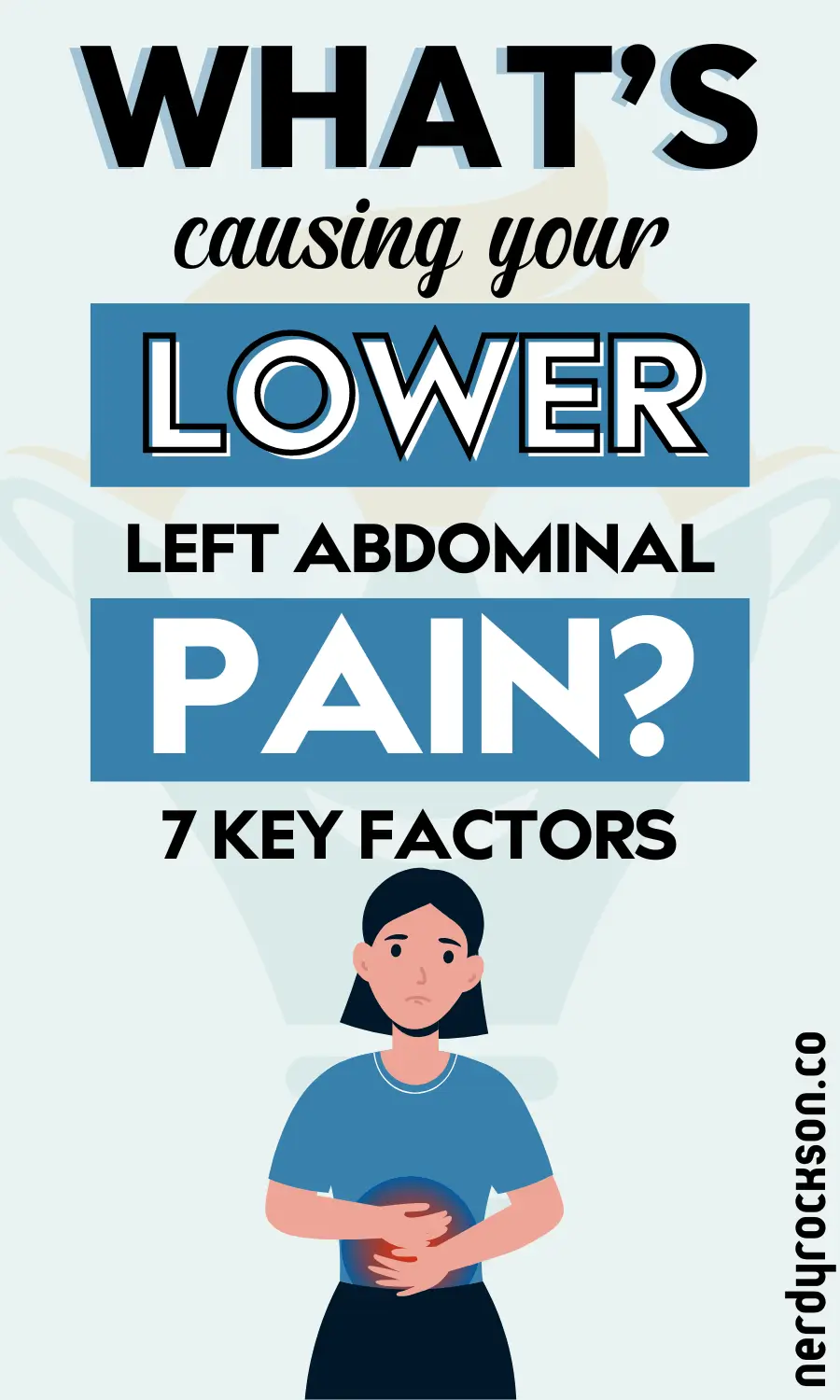
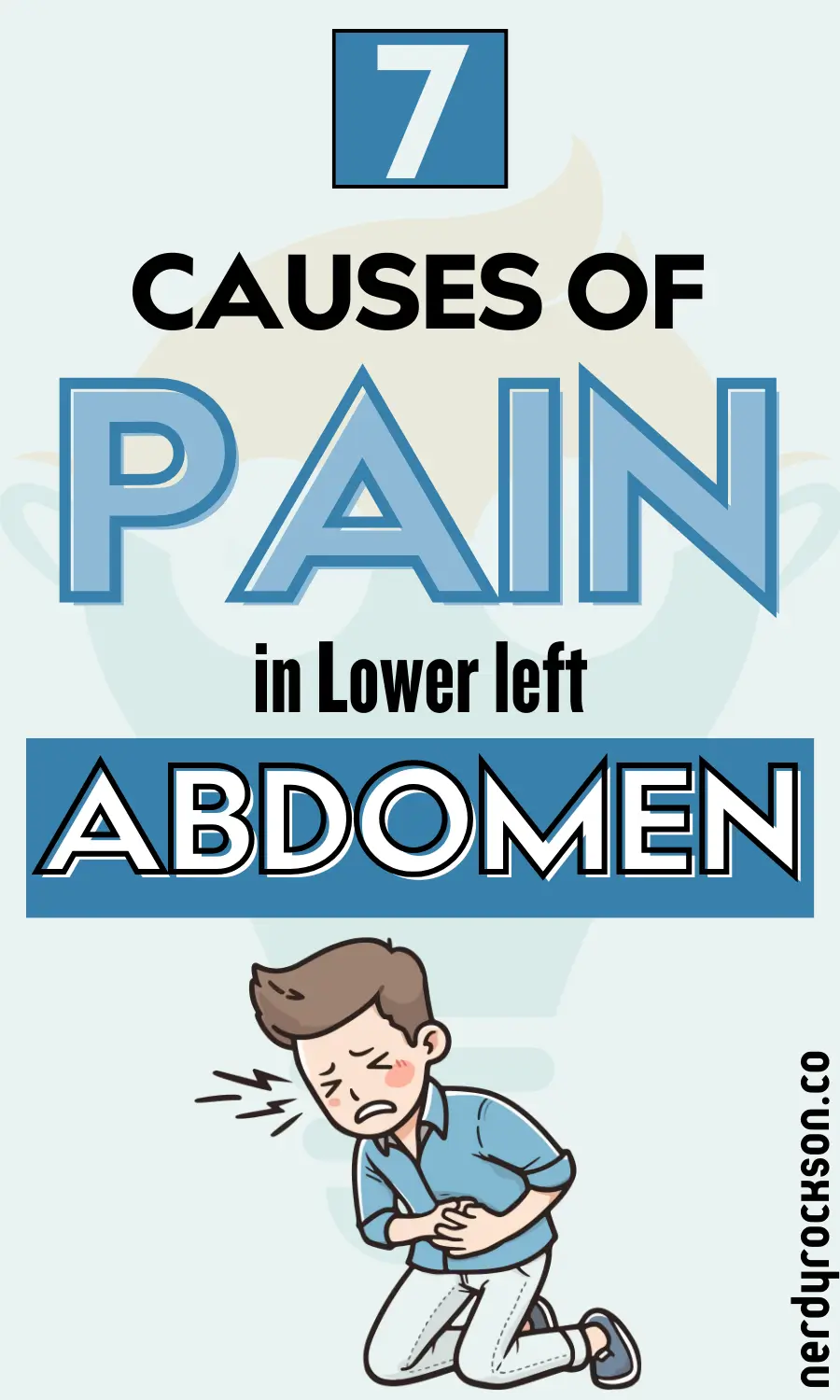
6. Endometriosis
Endometriosis is an often painful and misunderstood condition that can lead to discomfort in the lower left abdomen. Essentially, it’s an ailment where tissue that typically lines the uterus begins growing outside of it, often around the abdomen and pelvic area, which can result in intense pain.
Endometriosis can often lead to discomfort and pain in the lower left abdomen. This is due to the tissue – which should normally line the uterus – growing outside and around the abdomen and pelvic area.
Although the exact cause of endometriosis is not fully understood, there are several theories in the medical community. These include retrograde menstruation, where menstrual blood flows back into the pelvic cavity instead of leaving the body, and an immune system disorder that might make the body unable to recognize and destroy endometrial tissue that’s growing outside the uterus.
Common symptoms of endometriosis may include but are not limited to:
- Intense pelvic pain, especially during menstruation
- Lower abdomen pain, often on the left side
- Pain during intercourse
- Pain during urination or bowel movements
- Heavy menstrual periods
- Infertility in severe cases
As for the treatment options, they’re generally focused on managing the symptoms, with measures ranging from pain relievers, hormonal therapy, to surgery in severe cases. But remember, it’s important to consult a healthcare professional who can provide a customized treatment plan based on the individual’s specific symptoms and health concerns. So, if you’re experiencing persistent or worsening pain in your lower left abdomen, do get in touch with a medical expert.
7. Irritable bowel syndrome (IBS)
For many of us, a pain in our lower left abdomen might be nothing more than a fleeting annoyance. But for those dealing with Irritable Bowel Syndrome or IBS, this discomfort can be a persistent and distressing part of every day. Understanding why IBS can cause this type of pain and how to manage it can make all the difference.
IBS primarily affects the large intestine, which wraps around one’s abdomen in an arch. The lower left section is often impacted due to the natural flow of waste through the gastrointestinal tract. The exact cause of IBS is unknown, but it’s thought to result from issues like overly active gut muscles, inflammation in the gut, abnormalities in the nervous system, or severe infection.
IBS is notoriously unpredictable, with symptoms often varying dramatically from one person to the next. While lower left abdominal pain is common, other symptoms can include bloating, constipation, diarrhea, or alternating between constipation and diarrhea.
In terms of treatment, it’s important to remember that there is no one-size-fits-all approach when it comes to managing IBS. However, several strategies can help mitigate symptoms and promote gut health. These often include changes to your diet, like limiting high-gas foods, incorporating supervised fiber intake, and ruling out common food intolerances.
- Dietary changes: This can include an increase in fiber for people with constipation-predominant IBS, or a decrease for those with diarrhea-dominant IBS. It may also involve the elimination of trigger foods.
- Lifestyle modifications: Regular exercise, sufficient water intake, and adequate sleep can prove beneficial in managing IBS symptoms.
- Medication: Depending on the severity and predominant symptoms of IBS, medication may be prescribed by a doctor. These can be laxatives, anti-diarrheal drugs, antispasmodic drugs, or even low-dose antidepressants.
- Counseling and Support: With IBS being a chronic condition, it’s not unusual for people to feel stressed or depressed. Psychological counseling can be considered in such cases.
It’s crucial to remember that while the pain in the lower left abdomen is often associated with IBS, it can signal other health problems too, and a proper medical diagnosis is vital.
How to relieve pain in lower left abdomen
Isn’t it challenging when you experience that discomforting pain in lower left abdomen? Never fear, dear reader; we’ve compiled some practical tips for you to alleviate it. Keep in mind, that these suggestions are intended to provide temporary comfort. However, it is crucial to consult a medical professional for prolonged or severe pain. Living in constant pain should never be your norm.
Firstly, try out these tips:
- Hydrate: Increase your water intake. This simple act can help reduce symptoms or even help pass kidney stones. Plus, it aids digestion, reducing the chances of constipation.
- Over The Counter (OTC) Pain Relievers: Non-prescription drugs, like paracetamol or ibuprofen, may offer temporary respite. Ensure you’re following the dose instructions. However, if pain persists, seek medical advice.
- Warm Compresses: Gently applying a heat bag or a towel soaked in warm water to the affected area can help relieve muscle tension and soothe aches.
- Gentle Exercise: Engaging in light physical activity such as walking or yoga can help relieve tension. However, refrain from strenuous activity until the pain subsides.
- Rest: Sometimes, your body just needs a break. If possible, try to rest and avoid heavy lifting or high-intensity activities while you’re in pain.
Remember, these tips are intended as comfort measures. Persistent or severe pain requires a consultation with a healthcare provider.
If you experience persistent or severe pain in your lower left abdomen, it’s essential to consult a healthcare professional as this might be a sign of severe health issues such as diverticulitis or endometriosis. Remember, early detection is key in treating such issues effectively. Don’t ignore your body’s signals.
Dr. Jane Smith, Advanced Gastroenterology
Conclusion
When you feel a nagging pain in your lower left abdomen, it’s normal to be concerned – but this informative and detailed article has provided you with seven common reasons why you might be experiencing this discomfort. From diverticulitis and kidney stones to women-specific conditions such as ovarian cysts and endometriosis, the potential sources are diverse. More generic issues such as hernias, gastroenteritis, or irritable bowel syndrome could also be at play. Nevertheless, while it’s important to understand these possible reasons, nothing beats professional medical advice, particularly if your pain is severe or persistent.
Don’t hesitate to reach out to healthcare professionals when in doubt. Knowledge is power, but self-diagnosis can lead to wrong assumptions. This guide should serve as a starting point on your path to understanding, not a final confirmation.
Remember, communication is key in the medical domain. Your healthcare providers can only help you based on the information they have, so having an inkling of what might be going on could be of great assistance. However, convey your symptoms accurately rather than leading with a self-made diagnosis, and make sure to answer all inquiries to the best of your ability. This article should have given you a solid foundation to do exactly that. Being well-informed is your best defense, and now you are better prepared to take control of your health.
